In a little over two months I’ll be competing in my fourth marathon, specifically Sugarloaf Marathon in Maine. I’ve recently gone into panic mode because my Strava numbers indicate a gross deficit of mileage compared to my contemporaries whom are also training for Springtime marathons. Simply put, consistent long runs have not happened as I’m still over-coming some back issues coupled with muscle restriction that occurs when running in below freezing temperatures. (Thanks Boston!)
My current weekly mileage has been a paltry 15-20 miles; but to be fair, I’ve also been spending a lot of time in the pool and spinning on the watt bike at my sports club. Still, there’s no denying the importance of the long run.
A brief history of my 26.2 journey:
The Spring of 2014 I raced my first marathon in Paris and hit the starting line absolutely 0% trained. My run record keeping doesn’t extend that far back, but I can say with all certainty there were months of no running leading up to the race due to an ankle injury. Not a single run. Additionally, I had never run farther than 13.1 miles in my entire life. [Insert lolz emoticon here.] Determined, I crossed the finish line in 4:23. I don’t need to tell you how destroyed my body was afterwards.
The following Autumn I raced my second marathon in Philly. I didn’t follow a plan, but I was slightly more prepared—and I use the words slightly (and prepared) generously. While my finishing time improved to 3:45, I still hadn’t properly and fully trained to successfully race 26.2 miles.
In 2015 I signed up for my first 70.3 half Ironman and spent most of the Spring and Summer training to be able to complete the distance. I pieced together my training from fellow triathletes with emphasis on improving my swim. (Again, no plan.) My long-course triathlon was successful and within a few days I began focusing on my third marathon, Marine Corps Marathon in Washington D.C..
My goal was to qualify for the 2017 Boston Marathon and as such needed to finish in less than 3:15. I planned my training and had an enormous amount of help from many of my talented running friends. My last long run before the race was executed at marathon pace… this would be my first fully trained marathon. I narrowly hit my goal finishing in 3:14. (While I hit the standard Boston qualifying time, it wasn’t quite good enough for entry to the 2017 Boston marathon.)
I spent the entire year of 2016 training for my first full Ironman. I had a professional coach and a strict training regimen. I’ll spare you the sordid details, but my Ironman training usurped all other training and races. After I completed Ironman Maryland I started to plan for 2017. I decided to keep the triathlons to a half-Ironman max-distance and work on getting my run speed back. But most importantly, I wanted to find a marathon to finally punch my ticket to Boston.
present day
This past November and December I was plagued with some low-back issues that side-lined me until the start of the new year. Over the past few months I’ve been able to tackle a few 13-15 mile runs, but with recent Boston temps dipping below freezing I haven’t been able to physically handle the effects of the cold. It’s been extremely frustrating.
With my marathon right around the corner, I’ve gone into a self-induced panic. There’s no way I’m going to be prepared to hit my goal. There’s just not enough time. It’s too fucking cold. My back still isn’t 100%. I am so far behind it’s ridiculous. I should probably drop out of the race… right?
This morning I decided to review my Strava log to see just what kind of amazing training I did for Marine Corps Marathon that afforded me one my proudest achievements. If I recall correctly I was constantly hammering the track, regularly executing low-6 pace tempo runs, and putting in months of high-mileage quality efforts.
To my great surprise, actually none of these things happened. I was quite shocked to discover just how little training I did. Sure my base-level fitness was probably a bit elevated from training for my 70.3 triathlon, but even that training was nothing exceptional (I only rode my bike more than 50 miles on two occasions).
As it turns out, during triathlon training my weekly total run mileage was rarely over 20 miles. After my 70.3 that mileage increased to the 20-30 range with the exception of one week with a random 17-miler thrown in. These numbers are very, very low for successful marathon expectations.
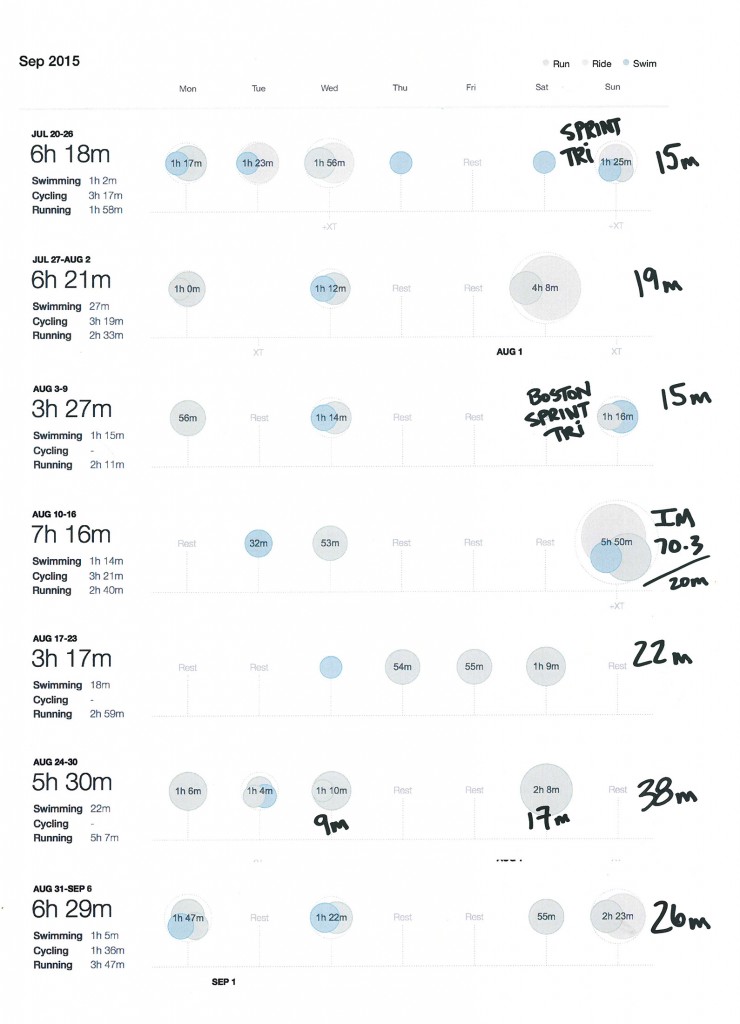
This is where it gets interesting
After my last triathlon of the season I ramped up the mileage. With no build-up, I went right into three consecutive 40+ mile weeks of running culminating with Saturday long runs, respectively 19, 20, and 21 miles.
My last long run was 21 miles at marathon goal pace—a full three weeks before the marathon. The following weekend I raced a half-marathon. And then I got a chest-cold resulting in not running for almost two full weeks before my race. Two full weeks of not running—that’s a hell of a taper.
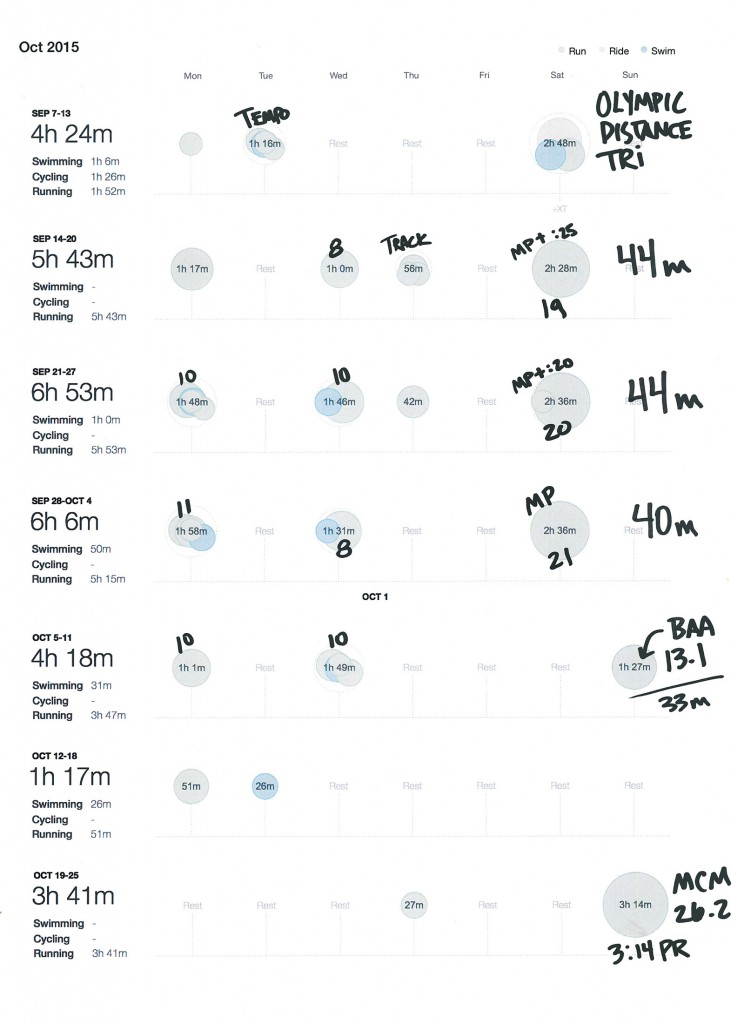
My Strava records would suggest I was not as über-trained as I thought. According to my workout log I hit the track exactly once. During my “high intensity” weeks I only ran four (sometimes only three) out of seven days. (!) I effectively only put in three long runs.
So many questions here…
Would I have had an even more successful race had I trained hard more than three weeks? If I hadn’t been plagued with a chest cold would one more week of training shaved a few more minutes off of my time? Did my additional workouts, such as swimming, improve my endurance on the run? How much of training (and its benefits) is perceptual vs. actual?
It’s hard to know the answers to these questions, but one thing is certain… I am no longer freaking out about how much time is left to train for my Spring marathon.
What I think happened
There’s the physical component of endurance–having the conditioning necessary to run for over three hours–but also the mental muscle-memory required to process time in motion. When I was training for my full Ironman my initial long rides of 40 miles felt like absolute death. Within a few months I had increased my distance to a century (100 miles) and suddenly 40 miles was nothing. My brain was processing the distance at a rate probably faster than my body.
My first half-Ironman was six hours of swimming, biking and running. While I actually believe a stand-alone marathon is more difficult than a 70.3 triathlon, it’s still a long time to be in constant motion. So most likely a combination of base fitness and long-course endurance experience served me well.
MCM was not my first marathon. Not that I am some hyper-experienced marathoner, I am emphatically not, but I am certain if this had been my first marathon it would not have yielded the same results under identical circumstances. At the very least, I had experience with the distance.
Prior to racing MCM I was in a really amazing state of mind, feeling exceptionally positive coming off of my 70.3 race goal and staying 100% healthy. All year long I was setting PR’s and there was no reason for me to think that I wouldn’t have a great race. I attribute much of the success of this race to my attitude.
So… don’t panic
If you are like me there is always a modicum of worry before any race. I try to remind myself that:
I am not a professional athlete. I will never be in danger of losing a sponsorship. No one has forced me to sign up for any race, ever. No one is holding me to a time. I do this for no one other than myself. I am not racing against anyone but myself. My goals are my own, set by me alone. My world won’t end if a race doesn’t go to plan. No one’s opinion of me will change if I don’t hit my goal.
What prompted me to write this has little to do with what little training I did and more to do with my current-day perception of what training I thought I did. Maybe this has to do with the ridiculous IM training I accomplished last year, or maybe it has to do with my collective inability to accurately gauge my progress over time. Or maybe there’s a deep-seated anxiety of the aging process and the fact that 2017 pits me against a brand new age group. (My Boston Qualifying time has increased by ten minutes.)
Regardless, I’m just going to let Spring spring, do what I can (when I can), give it my all and let the race unfold as it wants to unfold.
3:10 would be amazing, but so would just being able to finish.
That’s the plan. No panic.


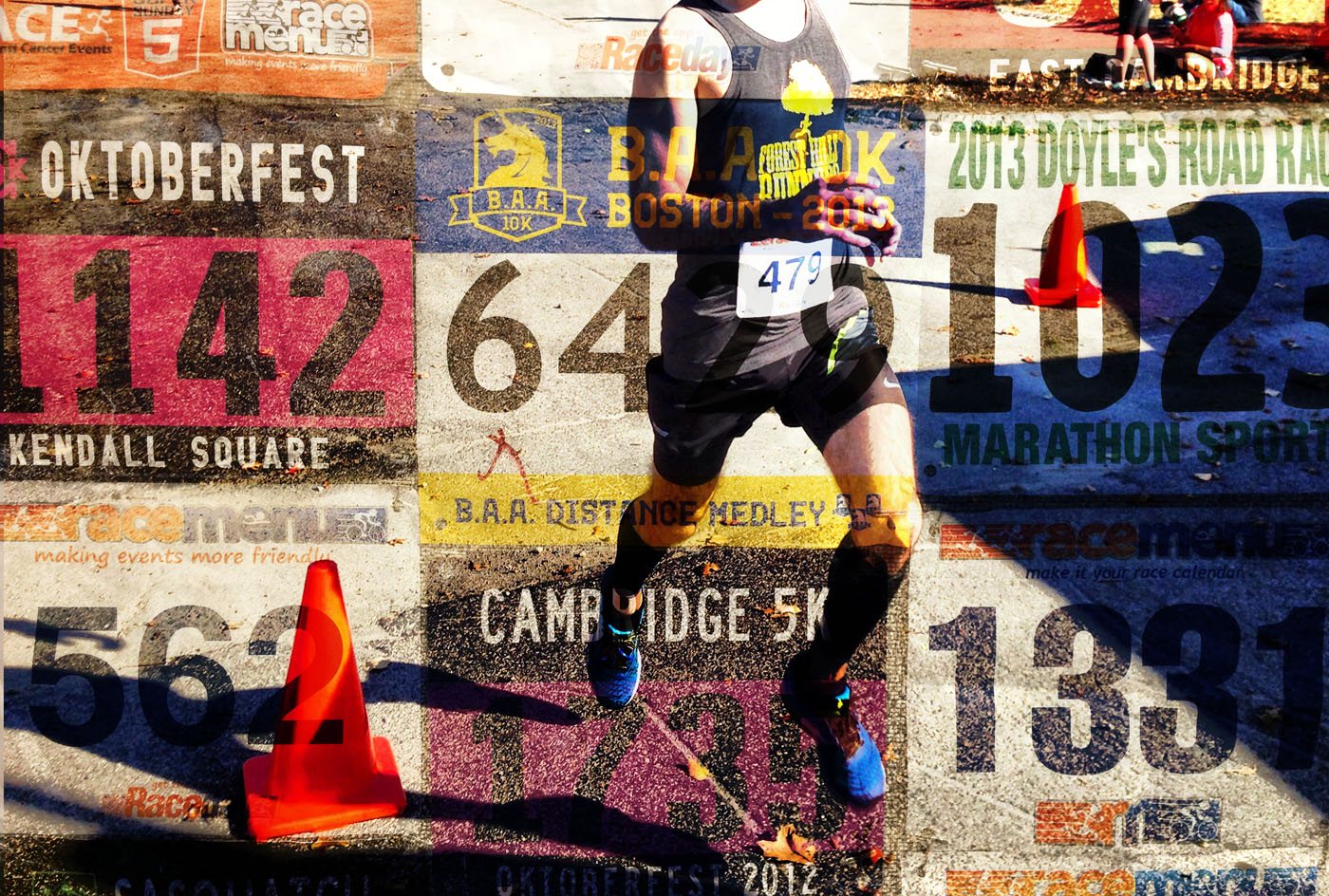
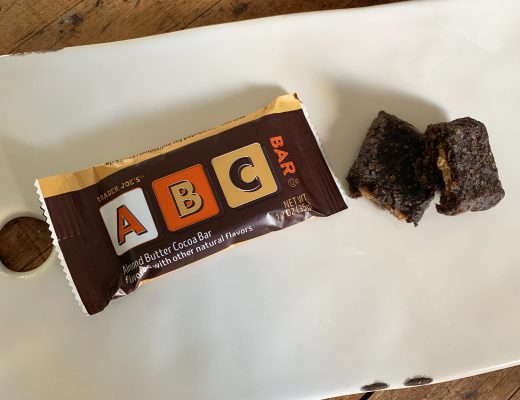
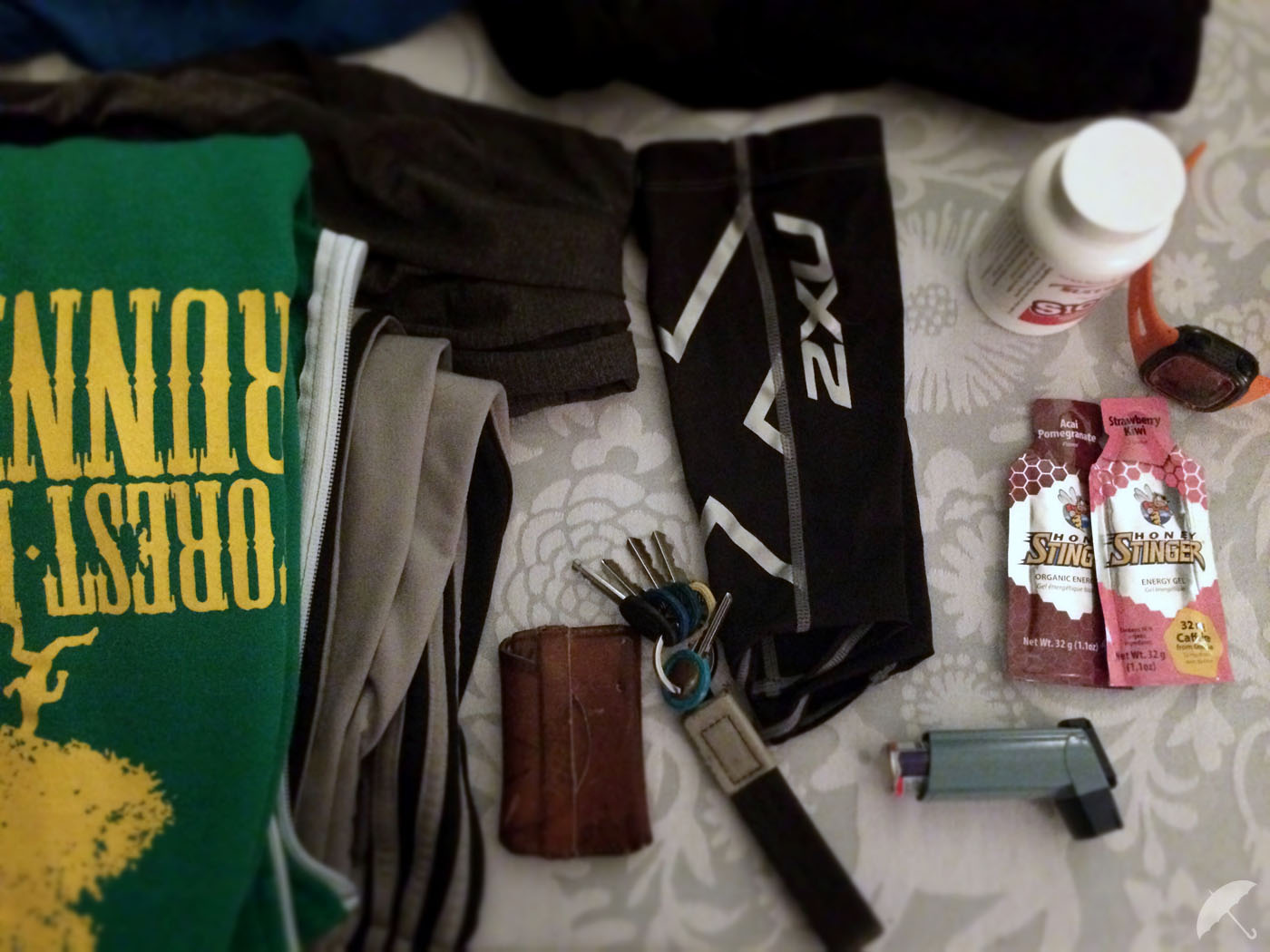
No Comments